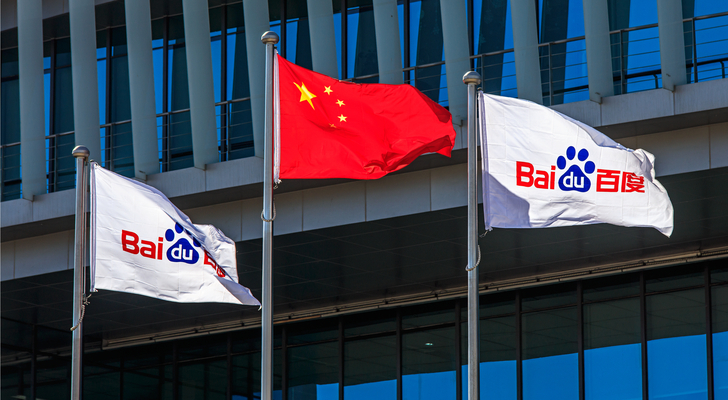China internet stocks have been hammered over the past few months, and Chinese digital search giant Baidu (NASDAQ:BIDU) has not been spared. Baidu stock peaked in May 2018 at over $280. Since then, BIDU has dropped more than 35% to $180.
The narrative surrounding China internet stocks is structurally damaged by a slowing Chinese economy and rising trade risks. This has made stocks like Baidu a must-avoid. But, at $180, Baidu stock is in deep value territory, and arguably too cheap to ignore.
According to TipRanks, the average price target on Baidu stock is $295, implying 60%-plus upside from current levels. The lowest price target out there is $250. That still implies nearly 40% upside. Meanwhile, the algorithms over at Finbox.io put Baidu stock’s fair value at over $300. The folks at Morningstar agree, as they have a fair value on Baidu stock over $320.
In other words, analysts across the board are in total agreement: Baidu stock is way undervalued. Are they right?
I think so. This stock has been unfairly beaten up on overstated and premature concerns regarding an economic slowdown in China. The reality is that while the China economy is slowing, it isn’t slowing by enough to knock Baidu’s secular growth narrative off course. Unless the Baidu growth narrative gets entirely knocked off course, the current valuation on Baidu stock seems like a bargain.
As such, this is a dip worth buying.
Third-Quarter Numbers Affirm Strong Revenue Trends, But Highlight Margin Weakness
Baidu just reported third-quarter numbers, and they didn’t do much to dismantle either the bull or bear thesis. Bulls got big revenue and user growth amid a supposedly slowing China economic backdrop. Bears got continued revenue growth deceleration and margin compression amid an era of heavy investment for Baidu.
In the big picture, Baidu’s third-quarter numbers highlighted that this is a secular growth company that will leverage exposure to digital advertising, cloud, IoT and AI to drive sustained healthy revenue growth over the next several years. But, those same numbers also highlighted that growth is slowing, and margins are coming down.
Let’s put this context of valuation. Even after the big selloff, Baidu stock still trades at 18X forward earnings. That isn’t cheap. It is below the growth-average multiple of 20, yet above the market-average multiple of 16. Thus, Baidu stock is being valued somewhere between a growth company and an average company.
The revenue numbers say Baidu is a growth company. Revenues rose 27% year-over-year in Q3, and are projected to rise 23% in Q4. But, the profit numbers say Baidu is an average company. Operating profits rose just 2% year-over-year in Q3, due to operating margins compressing from 25% to 20%.
Thus, in order for Baidu stock to regain its premium valuation and rebound, this company needs margins to stabilize and/or head higher. Unless that happens, profit growth will be insufficient to support a growth valuation.
Baidu Stock Seems Undervalued At $180
At current levels, Baidu stock is being priced for margin stabilization. The upside in this stock comes from potential margin expansion.
Baidu reported revenues of roughly $12 billion last year. Its U.S. counterpart,
Google (NASDAQ:GOOG), is a $130 billion revenue company still growing at a 20%-plus pace. In that context, Baidu still has a long ways to go in terms of revenue growth. That growth will come from more robust digital advertising, more widespread IoT adoption, and bigger enterprise investment into cloud and AI.
Thus, Baidu is easily a 15%-plus revenue growth company over the next several, and likely a 20%-plus growth company.
During that stretch, it will be tough for expenses to keep up with revenue. Right now, Baidu is being weighed by huge losses at iQiyi (NASDAQ:IQ) and big investments into the app ecosystem. Eventually, iQiyi’s margins will improve with scale, and big investments into apps will scale back once the app ecosystem is fully fleshed out. When that happens, these big expenses dragging margins down will phase out, and margins will ramp higher on a much bigger revenue base.
Thus, a worst-case scenario for Baidu going forward seems like 15% revenue growth with margin stabilization around 20%. Under those assumptions, Baidu can do about $12 in EPS in five years. A growth-average 20 forward multiple on that implies a four-year forward price target of $240. Discounted back by 10% per year, that equates to a 2018 price target of roughly $180.
Thus, Baidu stock today is being valued for mild revenue growth and margin stabilization.
But, in all likelihood, revenues should rise in excess of 15% over the next five years (see Google’s 20%-plus growth trajectory). That robust revenue growth will power incremental margin expansion. Assuming 20% revenue growth and operating margin expansion back to 25%, Baidu earnings power jumps to $16 in five years. Using the same calculus as above, that equates to a 2018 price target of $240.
Bottom Line on BIDU Stock
When it comes to Baidu stock, it’s all about margins. If margins stabilize, Baidu stock makes sense at $180. If they rebound, Baidu stock could roar higher. The only reason not to buy Baidu stock is if you think margins will continue to deteriorate and remain permanently weak.
I don’t think that will happen. Consequently, I’m cautiously optimistic on BIDU stock at current levels.
As of this writing, Luke Lango was long BIDU and GOOG.

